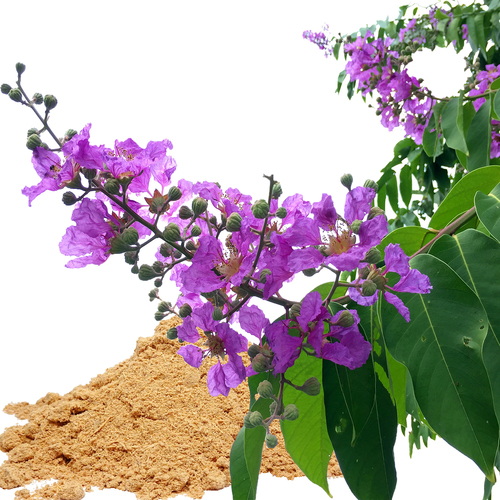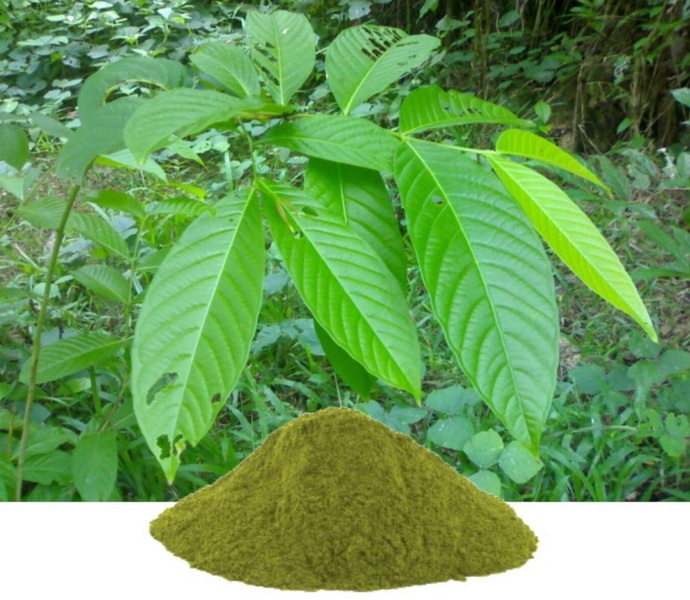Content Menu
● Introduction to Banaba Leaf Extract
● Benefits of Banaba Leaf Extract
● Common Side Effects of Banaba Leaf Extract
>> 1. Hypoglycemia (Low Blood Sugar)
>> 2. Gastrointestinal Issues
>> 3. Allergic Reactions
>> 4. Interactions with Medications
>> 5. Pregnancy and Breastfeeding
● Safety Precautions
● Potential Long-Term Effects
● Interactions with Other Supplements
● Conclusion
● FAQ
>> 1. What are the common side effects of banaba leaf extract?
>> 2. Can banaba leaf extract interact with other medications?
>> 3. Is banaba leaf extract safe during pregnancy and breastfeeding?
>> 4. How can I minimize the risk of gastrointestinal side effects from banaba leaf extract?
>> 5. Do I need to monitor my blood sugar levels when taking banaba leaf extract?
● Citations:
Banaba leaf extract, derived from the leaves of Lagerstroemia speciosa, has gained popularity for its potential health benefits, including lowering blood sugar levels and aiding in weight loss. However, like any herbal supplement, it can cause side effects, especially when used improperly or in combination with other medications. This article will delve into the common side effects of banaba leaf extract and provide guidance on safe usage.

Introduction to Banaba Leaf Extract
Banaba leaves have been used in traditional medicine for centuries, particularly in Southeast Asia, to manage diabetes and other health conditions. The extract contains bioactive compounds such as corosolic acid, which is believed to contribute to its therapeutic effects.
Benefits of Banaba Leaf Extract
Before discussing the side effects, it's essential to understand the benefits of banaba leaf extract:
1. Blood Sugar Control: Banaba leaf extract is known for its ability to lower blood sugar levels by enhancing insulin sensitivity and glucose uptake in cells.
2. Weight Loss: It may aid in weight loss by suppressing fat synthesis and increasing fat metabolism.
3. Cholesterol Reduction: Banaba extract can help reduce triglycerides and increase HDL (good) cholesterol levels.
4. Antioxidant Properties: Banaba leaf extract contains antioxidants that can help protect against oxidative stress and inflammation.

Common Side Effects of Banaba Leaf Extract
While generally considered safe, banaba leaf extract can cause several side effects, especially when taken in high doses or combined with other medications:
1. Hypoglycemia (Low Blood Sugar)
One of the most significant risks is hypoglycemia, particularly for individuals already taking diabetes medications. Symptoms include dizziness, sweating, confusion, and fainting.
2. Gastrointestinal Issues
High doses of banaba leaf extract may lead to gastrointestinal discomfort, including nausea, diarrhea, and stomach cramps.
3. Allergic Reactions
Some individuals may experience allergic reactions, such as skin rashes, itching, or swelling. If these occur, discontinue use and consult a healthcare provider.
4. Interactions with Medications
Banaba leaf extract can interact with certain medications, such as diabetes drugs and blood pressure medications, potentially leading to adverse effects like hypoglycemia or hypotension.
5. Pregnancy and Breastfeeding
There is insufficient data on the safety of banaba leaf extract during pregnancy and breastfeeding, so it is recommended to avoid its use in these conditions.
Safety Precautions
To minimize the risk of side effects, follow these safety precautions:
- Consult a Healthcare Provider: Especially if you have diabetes, are pregnant, or breastfeeding.
- Start with Low Doses: Gradually increase the dose to minimize gastrointestinal issues.
- Monitor Blood Sugar: Regularly check blood sugar levels if you are diabetic.
- Avoid Overuse: Do not exceed the recommended dosage to prevent adverse effects.
Potential Long-Term Effects
While short-term side effects are well-documented, there is limited research on the long-term effects of banaba leaf extract. However, prolonged use may lead to:
- Dependence on the Extract: Some users might rely heavily on the extract for blood sugar control, which could complicate management if they stop using it.
- Nutrient Deficiencies: High doses over extended periods might interfere with nutrient absorption.
Interactions with Other Supplements
Banaba leaf extract can also interact with other supplements, such as:
- Chromium and Magnesium: These minerals are often used for blood sugar control and may enhance the effects of banaba leaf extract.
- Green Tea Extract: Combining with green tea extract might increase the risk of gastrointestinal side effects due to their synergistic effects on metabolism.
Conclusion
Banaba leaf extract offers several health benefits but can also cause side effects, particularly when not used properly. It is crucial to be aware of these potential risks and take necessary precautions to ensure safe use. Always consult with a healthcare provider before starting any new supplement regimen.

FAQ
1. What are the common side effects of banaba leaf extract?
The common side effects of banaba leaf extract include hypoglycemia, gastrointestinal issues like nausea and diarrhea, and allergic reactions such as skin rashes.
2. Can banaba leaf extract interact with other medications?
Yes, banaba leaf extract can interact with diabetes medications and blood pressure medications, potentially leading to hypoglycemia or hypotension.
3. Is banaba leaf extract safe during pregnancy and breastfeeding?
There is insufficient data on the safety of banaba leaf extract during pregnancy and breastfeeding, so it is recommended to avoid its use in these conditions.
4. How can I minimize the risk of gastrointestinal side effects from banaba leaf extract?
To minimize gastrointestinal side effects, start with a low dose and gradually increase it as needed.
5. Do I need to monitor my blood sugar levels when taking banaba leaf extract?
Yes, especially if you are diabetic, as banaba leaf extract can lower blood sugar levels and increase the risk of hypoglycemia when combined with other diabetes medications.
Citations:
[1] https://naturmedscientific.com/banaba-leaf/
[2] https://esther-mall.com/blogs/news/effects-of-coleus-banaba-leaf-extract-from-blood-sugar-to-weight-control-3-benefits-of-banaba-leaf
[3] https://www.healthline.com/nutrition/banaba-leaf
[4] https://bksy.ecnu.edu.cn/_upload/article/files/51/eb/3c1adf774e569c6143b4e852b26a/6f6c020f-37d9-4ca2-845a-a75064a8d01f.pdf
[5] https://www.drugs.com/npp/banaba.html
[6] https://www.cnblogs.com/apachecn/p/18520564
[7] https://www.webmd.com/vitamins/ai/ingredientmono-1089/banaba
[8] https://huggingface.co/openbmb/VisCPM-Chat/raw/main/vocab.txt
[9] https://www.rxlist.com/supplements/banaba.htm






























